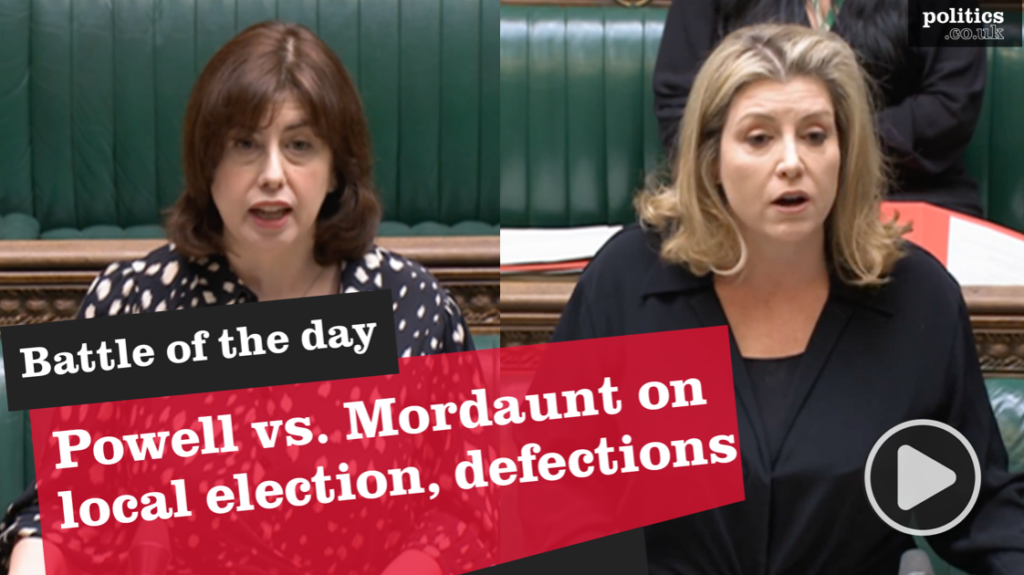One reading of this long summer recess is that it has been an extended learning exercise for Rishi Sunak who has — at other moments of political quiet — failed to do the requisite heavy lifting and suffered for it politically.
The Easter recess, parliament’s last long break, was dominated by the Labour Party amid a confected row over attack ads that claimed Sunak did not support jailing child abusers. It was a serious success for Labour as they showed how targeted communications, timed during a downturn in the news cycle, can yield a political windfall. There is no doubt: the Conservatives were taken off-guard as Starmer rammed home, with little nuance but imperious intent, its pitch on law and order.
But if all an opposition party can do — recess or otherwise — is say things, Sunak has this summer wanted to show that he could go one further: make advances on policy.
It gets to the heart of how a prime minister, especially one who has placed his government on pre-election footing, should use his office and those of his colleagues to campaign. For Sunak has intended to use the quiet of recess to drive up the salience of issues that Labour might reasonably be viewed as exposed on, while showing that the government can grip problems and emerge on the right side of public opinion.


Of course, there is an element of political necessity here, too. With an election now less than 18 months away and the Conservatives trailing by 20 points in the polls, Sunak could hardly allow silly season to rumble on without concerted ministerial intervention.
So after Easter saw Starmer bury his managerial instincts in favour of a hyper-political approach, summer was Rishi Sunak’s turn to hit his opponent where it hurts. The government media “grid” was therefore divided up and apportioned to areas where Sunak feels he could yet gain the upper hand. I’ll take them in turn.
Energy week
Sunak’s first attempt to tyrannise silly season came with “energy week”, which itself followed news that the Conservative Party had narrowly avoided losing three by-elections in one night after holding onto Uxbridge and South Ruislip. The focus on energy hence allowed for an easy distraction from the disastrous losses of Selby and Somerton and Frome while, in the wake of Uxbridge and the debate over ULEZ, inaugurating a fight with Labour around the cost of saving the planet compared to the cost of not doing so.
Thus Sunak flew to Aberdeenshire to announce fresh oil and gas licences for the North Sea — but not before he had engaged in a bad-tempered clash with BBC Radio Scotland’s Martin Geissler. As Geissler queried the PM’s mode of transport of choice, Sunak responded: “If you or others think that the answer to climate change is getting people to ban everything they’re doing, to stop people flying, to stop people going on holiday, I think that’s absolutely the wrong approach”. Elsewhere energy security and net zero minister Andrew Bowie toured the broadcast studios, repeating the top line from Grant Shapps’ recent interview with the Financial Times that Britain would be “maxing out our oil and gas reserves”.
Cue the “Green Tory” outrage as Chris Skidmore, the former net zero tsar, tweeted that Sunak’s push marked the “wrong decision at precisely the wrong time when the rest of the world is experiencing record heat waves”.
But energy week was less about party management and more about amping up the pressure on Starmer with both “pro-motorist” policies and clues that the government was cooling on its climate commitments. Labour takes an ideological view of climate change, was the underlying message: but the government, while committed to net zero, won’t privilege politics over practicality during a cost of living crisis. On day three of energy security week, Shapps had a Telegraph op-ed today claiming Starmer’s policy on energy could even lead to blackouts.
Throughout this week, Sunak was a deliberately conspicuous presence in the media with a flurry of interviews, visits and photo ops as he sought to seize the ephemeral post-Uxbridge momentum. This included an appearance on LBC the day he jet-setted to California in a bid to drive the news agenda once more.
Small boats week
Sunak’s absence coincided with the beginning of small boats week, itself timed to coincide with the first arrivals on the controversial Bibby Stockholm barge on Monday 7 August. The boarding of the barge had been delayed for some time due to fire safety concerns, with the Fire Brigades Union describing the boat as a “death trap”.
Soon more media momentum was pilled in as home secretary Suella Braverman launched a task force on “crooked immigration lawyers”. The same day Lee Anderson said asylum seekers complaining about the barge should “f*** off back to France” — the sentiment of which ministers lined up to back. The message, like that in “energy week”, was clear: Labour fails to back the barge, fails to talk tough on illegal migration and simply does not have a plan.
But how quickly matters spiralled. Anderson, the Conservative party’s provocative deputy chairman, was not done stirring controversy as he admitted that Channel crossings were “out of control” and that the government had failed on the issue. Then immigration minister Robert Jenrick repeatedly refused to rule out Britain leaving the European Court of Human Rights, prompting a further round of Conservative factional infighting.
Day four saw the announcement that the number of arrivals across the Channel hit 100,000 since 2018. And then on Friday all of the new arrivals had to be moved off the Bibby Stockholm due to the discovery of Legionella. The government’s core message had been lost entirely amid the furore.
Health week
Then “small boats week” became “health week” and the government quickly moved onto some new attack lines. Steve Barclay, the health secretary, provocatively said he was “open to requests” for patients who had been waiting a long time for treatment in Scotland and Wales, where health is devolved, to be treated in England as he sought to blunt Labour’s advantage on the NHS.
And by 15 August Sunak was back from holiday ready to announce an additional £250 million to pay for 900 new hospital beds, and expanded urgent care and emergency treatment in a bid to treat more patients this winter. But, as NHS week flickers out, the government has still not found a way of batting away criticism directed at its own management of England’s health service amid record waiting times.
British politics, post-weeks
Ultimately, Sunak’s long summer begs serious questions about the direction of his government and the thinking informing its decision to tyrannise silly season with such “weeks”.
Was it politically sensible, for example, to hold a “small boats week” in the middle of August, when weather was improving, and with statistics just short of hitting the aforementioned 100,000 figure? Moreover, was it worth firming the constant attacks over the state of the NHS in England in a bid to redirect the media focus at Labour’s record in Wales?
In sum, it is difficult to avoid the conclusion that Sunak has lost rather a lot more than he has gained so far this summer. So, in a few weeks’ time, as Sunak’s closest advisers and election officials gather for a reported strategy awayday, what will be the focus?
The truth is, even after three weeks of non-stop media management, the government is still empty-handed when it comes to cutting attack lines.












